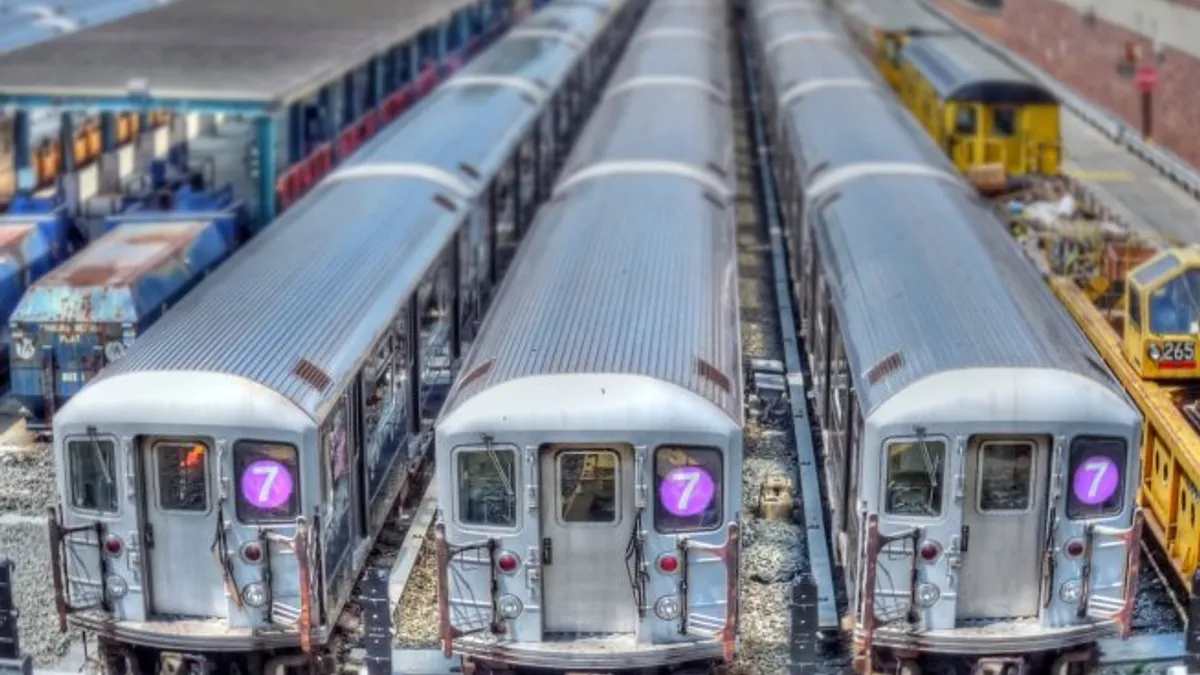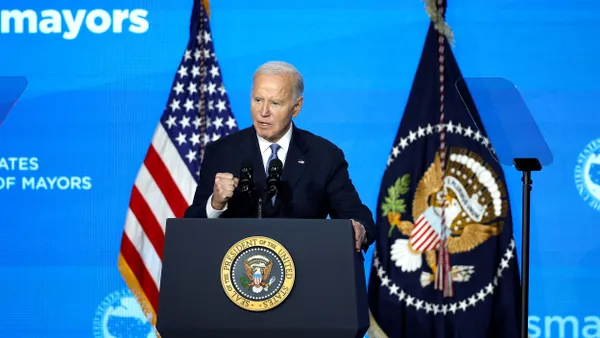Dive Brief:
- New York's Metropolitan Transportation Authority (MTA) has given up on removing trash cans from subway stations in an effort to improve cleanliness and cut down on rats since launching the pilot in 2011, as reported by amNewYork.
- The state agency saw positive results after starting the program at two stations and eventually expanded it to 39 stations. Though signage wasn't prominently displayed to communicate the change to customers in every station, among other factors, and littering continued. After seeing mixed results the MTA eventually returned cans to these stations in August 2016.
- As part of a new station cleaning program, the MTA has more than doubled its station cleaning schedule to now service 94 stations every two weeks. The agency will also be purchasing 27 new refuse cars to expedite the process and is continuing to roll out new track vacuums.
Dive Insight:
This particular MTA plan has long been a point of contention with the state comptroller's office, which has been periodically releasing reports that question the agency's lack of clear evaluation standards. It has been hard to quantify progress since visible signage wasn't posted to notify customers in all affected stations and clear methods weren't developed to count how many bags of waste were removed from the stations. Further complicating the results, the MTA recently reported an increase in the amount of delays caused by track fires from 801 in August to 1,599 in January. Without clear data on how the lack of cans affected waste it's hard to know whether their return led to this uptick.
The logistics of pulling 40 tons of waste out of the agency's 472 stations each day are challenging and a visible amount of this material often falls onto the tracks. Since launching "Operation Clean Sweep" last year, the MTA has stepped up its maintenance efforts and also begun investing in a small fleet of portable track vacuum units that have shown promise. These units are capable of catching any waste that falls off the platform and could otherwise encourage the rat population or cause track fires.
While the MTA's litter psychology experiment may not have worked they aren't the only government agency trying new tactics on this front. Cities such as Philadelphia and Los Angeles have made litter reduction key parts of their new "zero waste" strategies and many others have tried a variety of public education campaigns to address the issue. Many of these efforts have delivered results, but no clear solution has been found to change this problematic human behavior.
















